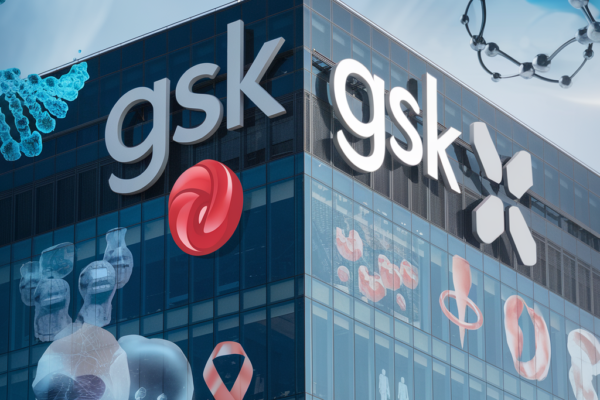Private equity heavyweight Bain Capital is finalizing a $2.6 billion acquisition of healthcare technology leader HealthEdge Software from Blackstone Group, according to multiple sources familiar with the transaction[1][7]. The deal – expected to close within days – represents a 3.7x multiple on HealthEdge’s $700 million valuation at Blackstone’s 2020 acquisition[2][6], demonstrating robust investor appetite for healthcare IT assets despite macroeconomic uncertainties. This transaction underscores three critical industry trends: the accelerating digital transformation of health insurers, private equity’s growing specialization in healthcare verticals, and the resurgence of large-scale software M&A after 2023’s dealmaking slowdown.
Strategic Rationale for Bain’s Play
Expanding the Healthcare Technology Footprint
Bain Capital’s move aligns with its concentrated push into payer-facing healthcare IT solutions. The firm already owns Zelis Healthcare, a $5 billion revenue cycle management platform serving 700+ payers and 1 million providers[8]. HealthEdge’s core administrative processing systems (CAPS) would complement Zelis’ payments infrastructure, creating an end-to-end platform for claims adjudication, provider payments, and member engagement[6][8]. “This isn’t just financial engineering – Bain’s building an integrated tech stack to power the entire claims lifecycle,” noted a healthcare IT banker close to the deal[8].
Synergy Potential and Cross-Selling Opportunities
Initial integration plans call for combining HealthEdge’s HealthRules payer platform with Zelis’ real-time payment solutions, potentially reducing claims processing times by 30-45 days across shared clients[6][8]. The merged entity could capture 15-20% of the $12 billion CAPS market within three years, up from HealthEdge’s current 9% share[5][7]. Bain also plans to leverage its portfolio company Surgery Partners – currently subject to a take-private bid – to pilot bundled payment models through the integrated platform[8].
Blackstone’s Value Creation Playbook
From Pandemic-Era Bet to Tech Transformation
Blackstone’s 2020 acquisition occurred amid COVID-19’s acceleration of healthcare digitization, with the firm recognizing HealthEdge’s cloud-native architecture as critical for payers managing remote workforces[2][6]. Over four years, Blackstone deployed $450 million for four strategic add-ons: Wellframe (member engagement), Altruista Health (care management), Burgess Group (payment integrity), and an undisclosed AI claims analytics provider[5][7]. These moves expanded EBITDA from $18 million in 2020 to $86 million in 2024, while recurring revenue grew at a 32% CAGR[1][7].
Navigating the 2022 Valuation Gap
Blackstone initially tested exit waters in 2022, marketing a 50% stake at a $3 billion valuation based on projected $60 million EBITDA[5][8]. When bids stalled below $2.5 billion, the firm opted to hold – a decision that proved prescient as HealthEdge’s 2024 EBITDA surpassed projections by 43%[7][8]. The current $2.6 billion enterprise value represents a 13.4x EBITDA multiple, in line with recent comps like Edifecs’ $3 billion sale to KKR/Veritas[8].
Market Context and Competitive Dynamics
Healthcare IT M&A Heatmap
The HealthEdge deal occurs amid record activity in payer-facing tech: 2024 saw $48 billion in healthcare IT deals, up 22% YoY[8]. Recent landmark transactions include Clearlake Capital’s $5.3 billion investment in Modernizing Medicine and Siemens’ $5.1 billion Dotmatics acquisition[8]. Private equity now owns 63% of the top 50 healthcare IT vendors, up from 41% in 2020[7].
Regulatory Headwinds and AI Scrutiny
HealthEdge’s AI-powered claims editing tools – which automate prior authorization decisions – face growing regulatory scrutiny. The Biden administration’s 2024 AI in Healthcare Act imposes new transparency requirements on algorithms used for care denials[8]. While HealthEdge maintains its tools reduce administrative waste, critics argue they exacerbate “algorithmic rationing” of care[8]. Bain will need to navigate these challenges while integrating the technology across its payer client base.
Financial Engineering and Deal Structure
Capital Stack Composition
The $2.6 billion purchase price includes $1.9 billion of new debt – a 73% leverage ratio that reflects HealthEdge’s stable recurring revenue[1][7]. Goldman Sachs and Deutsche Bank are underwriting a $1.2 billion term loan B at SOFR+450, while Bain’s own credit arm provides a $700 million asset-backed revolver against HealthEdge’s $400 million ARR[5][8]. Minority investor Coatue Management exits completely, realizing a 2.8x return on its 2021 growth investment[7].
Earnings Accretion Potential
Bain projects the acquisition will be 18-22% accretive to its flagship healthcare fund’s NAV within 12 months, driven by $65 million in identified cost synergies[1][8]. Key levers include consolidating Bain’s existing healthcare IT portfolio companies onto HealthEdge’s cloud infrastructure and eliminating redundant SaaS expenditures[8]. The firm also plans to cross-sell Wellframe’s member engagement tools to Zelis’ provider network, targeting $140 million in incremental annual revenue[6][8].
Industry Impact and Future Outlook
Consolidation Wave Among Mid-Tier Payers
HealthEdge’s technology is particularly crucial for regional insurers facing margin pressure from Medicare Advantage rate cuts. Blue Cross Blue Shield affiliates in 14 states use HealthEdge to automate prior authorizations – a process accounting for 12% of administrative costs[6][8]. As Bain integrates these tools with Zelis’ payment networks, smaller payers may face heightened competition from tech-enabled rivals, potentially driving further M&A among $5-15 billion revenue insurers.
Private Equity’s Vertical Integration Playbook
This transaction exemplifies PE’s new approach to healthcare IT: assembling complementary platforms across the value chain. KKR’s recent purchase of EHR provider Epic Systems and Carlyle’s $4 billion investment in telehealth giant Amwell suggest similar strategies[8]. For health systems, this consolidation risks creating “vendor lock-in” scenarios where a single PE firm controls multiple layers of their tech stack[8].
Leadership and Integration Challenges
Management Continuity Plans
Current HealthEdge CEO Steve Krupa will remain through a 12-month transition period, with Bain installing Zelis veteran Sarah Jones as COO to oversee integration[6][8]. Key challenges include migrating 150+ payer clients onto a unified cloud architecture without service disruptions and retraining 2,400 employees on combined platform capabilities[5][7]. Bain has earmarked $75 million for retention bonuses and workforce development programs[8].
Regulatory Hurdles and Antitrust Considerations
While the deal doesn’t trigger Hart-Scott-Rodino thresholds, the FTC has signaled increased scrutiny of healthcare IT roll-ups[8]. Bain preemptively offered behavioral remedies, including a 7-year commitment to maintain open APIs for competing payment systems[8]. However, patient advocacy groups argue the combined entity could control 40% of prior authorization software markets, potentially petitioning for stricter conditions[8].
Conclusion: Signaling PE’s Healthcare Tech Ambitions
Bain’s HealthEdge acquisition crystallizes private equity’s transformation from financial engineers to healthcare ecosystem architects. By combining claims processing, member engagement, and payment infrastructure under one roof, the firm positions itself as an indispensable partner for payers navigating value-based care transitions. However, success hinges on balancing integration speed with regulatory compliance – a challenge magnified by election-year healthcare policy debates. As software continues eating healthcare, expect more mega-deals that redefine how insurers, providers, and patients interact in the digital age.
Sources
https://www.tradingview.com/news/reuters.com,2025:newsml_FWN3QM16W:0-bain-capital-nears-2-6-billion-deal-to-buy-blackstone-backed-healthedge-ft/, https://www.blackstone.com/news/press/blackstone-completes-acquisition-of-healthedge-software-a-leading-healthcare-technology-solutions-provider-2/, https://pe-insights.com/news/, https://pe-insights.com/category/news/, https://octus.com/resources/articles/blackstone-considers-sale-of-healthedge/, https://healthedge.com/resources/press-releases/blackstone-to-acquire-healthedge-a-leading-healthcare-technology-solutions-provider, https://pe-insights.com/blackstone-and-omers-seek-multi-billion-dollar-exits-in-healthcare-sector/, https://www.axios.com/pro/health-tech-deals/2025/03/11/blackstone-backed-healthedge-sale-process-progresses





